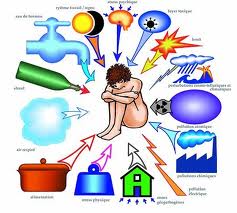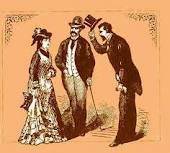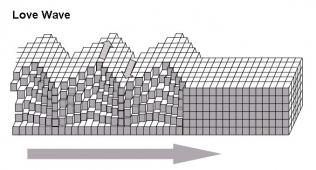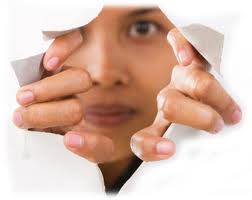Tennis psychology - a science and a tool!
The USPTR first showed me that you needed a whole book to deal with the psychology of tennis. In the LTA course there was nothing, but bearing in mind the playing level of those participants, maybe it would have been beyond them.
The problem with psychology is that it smacks of science, of medical science, but also that the study of psychological processes is somehow futile. The brain is still, I read somewhere recently, the most under-studied, misunderstood of every living thing or organism in our world. Yet we carry our brains around with us. We should know a lot how brains work.
The reason why the brain is so special is that with other organs, like the heart, or the liver, we can see and measure the physical processes that are going on. We can chemically and physiologically test what is going on. One of my relatives had a quadruple heart bypass this week. That means all of his major arteries serving the heart were kaput, and had to be replaced. Tubes were taken from veins in his legs. The operation lasted several hours. After a couple of days of discomfort, he was being sent home five days later! This is so easy. The heart is simply a muscle pump that needs free-running tubes to serve it. The pump is beautifully designed, and almost indestructible, so to "repair the heart", in fact means "repair the tubes"!
With the brain, "repair" is notoriously long. If you start a psychology rehabilitation it'll take months of regular sessions. Very little "medically" will take place in these sessions. It is largely a period of analysis, discovery, repositioning using an intermediary, a psychologist. Psychological conditions of all types, including hypochondria, are the biggest causes of absence from work, much bigger than coughs and colds. So it is a huge problem. Some employers refuse to admit that a worker should have time off work to "correct" any psychological imbalance. If you don't, there could be serious consequences.

An ancient medical discipline
Further, psychology is at once the oldest and most modern of medical areas. The "discoverers" of medicine, or at least of medicine as we in the Western World know it, was by the Greeks. It was as much a study of philosophy as of physiononomy. The Greeks worked on the basis of, if we know what it produces, and why, then we'll be able to discover HOW it works. This was very practical thinking, but despite the efforts of "medical philosophers", we still have very little control of what is really going on. In modern medicine, if a psychological problem appears, it is easier to prescribe calming tranquilisers than go on long, complicated, expensive psychological correction programmes.

workouttennis.com principals
You may have heard that tennis is a particularly "psychological" game. You have to get your mind right to be able to succeed, and the earlier you get this mind-set established, the quicker your progress. It doesn't sound too hard.
It is hard though. Rather than focus on the difficulty of getting your mind right, here I'd just like to give two ideas to ponder.
Work on the packaging
First, tennis is in fact no more difficult than any other sport, activity or challenge. Every new thing that you have to learn requires application. That application means, with some people, an interminable reworking of typical situations (in our case on the tennis court). This is the "psychological seance" on the tennis court.
For example, the coach at our club has a "psychological" problem. He hates playing away from home courts. So, although it'd hurt him to do it, I'd build in a lot of playing away from home into his schedule. He has to accept it and master it. But this is too simplistic. Identifying a problem is the easy part. Why does a very very good tennis player have such a problem playing away from home? It's because a message in his brain is telling him to CONTINUE hating playing away. That message he cannot control. He says he cannot control it. The proof is that he cannot control it. I can see it, he can see it. This all means that however much you work at such a "mental block", you are fighting against nature, against a wall of water that'll roll over you, engulf you, and leave permanent damage. You'll have this block the rest of your life. Unless you work at it.

Do you feel pressure?
Just to further illustrate this mental block, let's move away from tennis. Treatment of alcoholics is largely a psychological one. If you can convince the mind that you no longer need a drink, you have beaten it. If your mind is allowed to think what it wants to think, it'll always want a drink at some point or other. I remember I was doing some group match training in Germany many years back. The team captain warned me about one of his players. He said "he's a compulsive risk-taker. He's like that and he'll never learn otherwise." I couldn't believe what I was hearing. How can you say that someone will never learn? How can you say that the alcoholic will never be reformed?
Feel well in your group
Second, let's assume you have an identified weakness playing the first two points of every game, in other words, your intensity is not so great than in the 30-30, 30-40 points. The coach is obliged to set up an exercise to focus on the first two points of every game, maybe do a game where the first two points carry double value. Identified psychological weaknesses need to be treated. It is the coach's job.
In this example, the improvement of intensity on particular points, is NOT a technical, nor a strategic problem. It is a mental one. In my experience, like most psychological remedies, this will require rigorous repetition. The coach risks making a "mountain out of a molehill", and being ridiculed for his over-attention to this detail. He may end up focussing so much on it, prioritising it, that other projects with that player are put on the back burner. So, especially with match coaching, any player must expect some painful, often tedious, rehashing of the problem until suddenly something clicks. The coach himself won't know when the problem will be solved. He won't know for sure that his methods, his exercises, are actually the exact right way, at the right time, to be treating this problem. His work becomes experimental. A good match player coach should be trusted however. Often on the tennis court you must do things you don't like, enter the world of experimentation, and it is the coach's job to give you those things you don't like, to take your game to different levels. Coaches can become very unpopular.

How far does your coach go?
Are tennis coaches psychologically qualified? In my experience, very infrequently.
Should they be psychologically qualified? Not necessarily. Much useful coaching can be achieved without going into the intricasies of remedial psychology.
Would I recommend looking for a coach who expressly tries to find my psychological weaknesses in order to improve them? If you're ready for some long remedial work, but, getting spectacular results, then yes. A top level coach IS chiefly a psychologist.
Touring - the hard psychological test
Have A Great Story About This Topic?
Do you have a great story about this? Share it!

